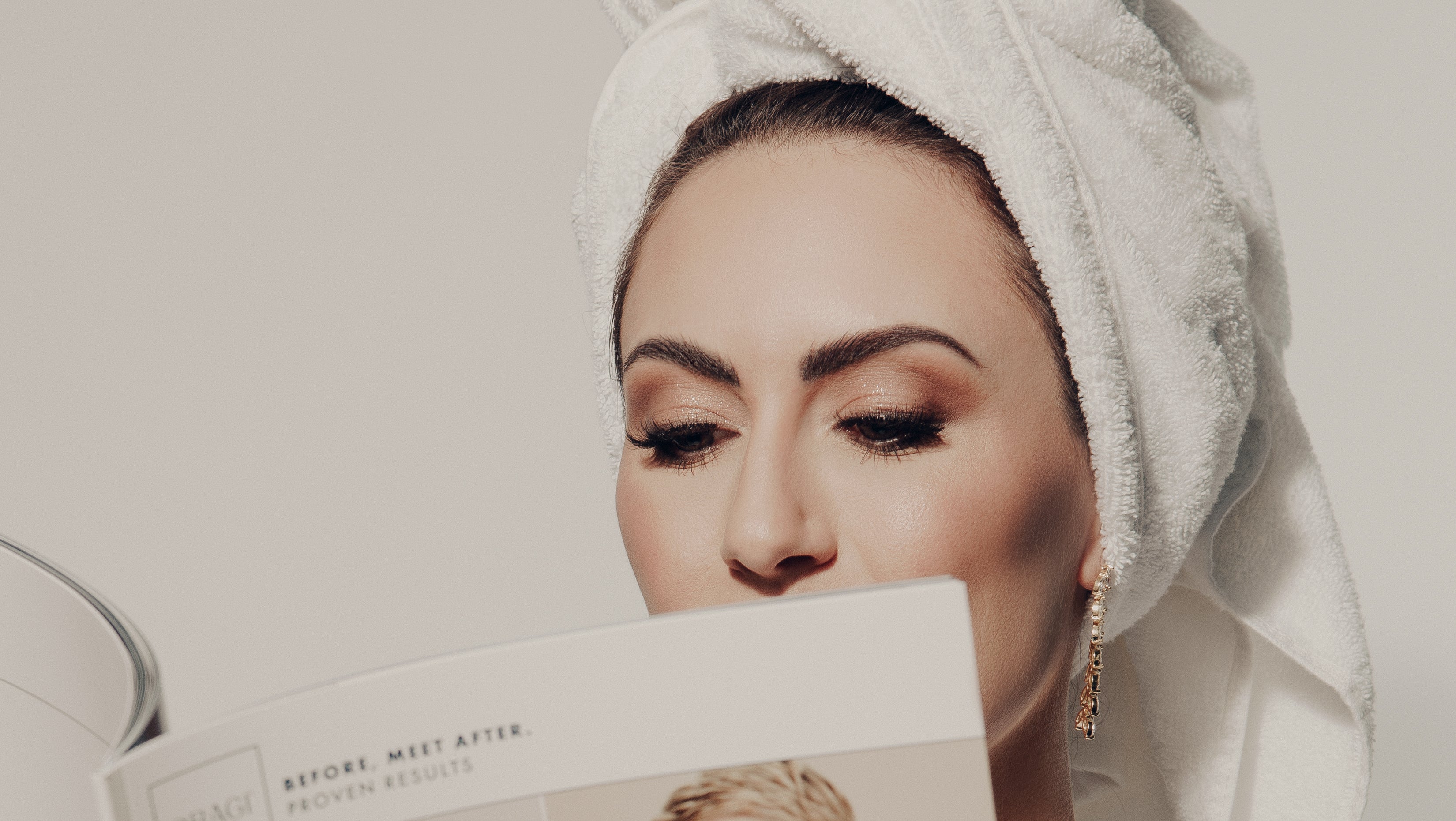
Comprehensive Guide To Rosacea
One extremely common issue we find at The Saint Louis Med Spa is customers who have rosacea and want to remove it from their skin. Rosacea is more than just flushed cheeks or occasional redness—it is a chronic skin condition that can affect a person’s confidence and overall quality of life. Whether you have noticed persistent redness in your cheeks or are simply curious about what rosacea involves, we will help you understand the condition from start to finish. From causes and treatments that can aid in management, let’s dive into everything you need to know about rosacea.
What Is Rosacea?
Rosacea is a chronic inflammatory skin condition primarily affecting the face. It often presents with:
- Persistent redness, usually on the cheeks, nose, chin, or forehead
- Visible small blood vessels (telangiectasias)
- Bumps or pimples that may resemble acne
- Skin sensitivity and dryness
- Some individuals with rosacea may also experience eye-related symptoms, known as ocular rosacea, which can lead to dryness, irritation, and redness in the eyes.
Common Subtypes of Rosacea
Rosacea can manifest in different ways and is generally classified into four main subtypes (though people can experience overlapping symptoms):
- Erythematotelangiectatic Rosacea (ETR): Characterized by persistent facial redness, flushing, and visible blood vessels.
- Papulopustular Rosacea: Often resembles acne, with red bumps and pustules appearing on the cheeks and chin.
- Phymatous Rosacea: Involves thickening of the skin and irregular surface nodularities, particularly around the nose (rhinophyma).
- Ocular Rosacea: Affects the eyes, causing dryness, irritation, redness, and potential vision issues if left untreated.
What Causes Rosacea?
The exact causes of rosacea are still not fully understood, and several factors are believed to contribute:
- Genetic Predisposition: If rosacea runs in your family, you may be more likely to develop it.
- Immune System Overreaction: Certain inflammatory responses in the body may be linked to rosacea flare-ups.
- Environmental Triggers: External factors such as extreme temperatures, sun exposure, wind, and humidity can aggravate rosacea.
- Dietary and Lifestyle Triggers: Spicy foods, alcohol, caffeine, and stress can trigger or worsen rosacea symptoms.
- Microorganisms: Research indicates that certain skin mites (Demodex folliculorum) and bacteria (Helicobacter pylori) may play a role in rosacea’s development.
How to Manage or Correct Rosacea
While rosacea is chronic and there is no definitive cure, it can be effectively managed through a combination of medical treatments, lifestyle changes, and proper skincare. Here are some strategies to keep it in check:
Consult one of The Saint Louis Med Spa’s Estheticians: If you suspect rosacea, your first step should be to see one of our estheticians. They can assess your skin, diagnose the condition, and tailor a treatment plan to reduce or remove rosacea.
Medication:
- Topical Treatments: Prescription creams and gels containing metronidazole, azelaic acid, or ivermectin can reduce inflammation and redness.
- Oral Medications: Antibiotics such as doxycycline may be prescribed short-term to control flare-ups.
Avoid Known Triggers: Keep a journal of flare-ups to identify triggers. Common triggers include hot drinks, spicy foods, alcohol, and sun exposure. Avoid or limit these to reduce flare-ups.
Sun Protection: Daily use of a broad-spectrum sunscreen (SPF 30 or higher) is crucial since sun exposure is a common trigger.
Gentle Skincare: Choose fragrance-free, non-comedogenic products designed for sensitive skin. Avoid scrubs and harsh exfoliants that can irritate and worsen redness.
Stress Management: Since stress can exacerbate rosacea, techniques like yoga, mindfulness, and meditation can help reduce flare-ups.
Med Spa Services: The Saint Louis Med Spa offers a variety of treatments that can complement your rosacea management plan. Consult with one of our estheticians to determine which option is best for you:
- Laser Therapy (IPL / BBL) - Intense Pulsed Light (IPL) and Boradband Light (BBL) can help target redness by shrinking visible blood vessels. These treatments bring the issue to the surface and remove the issue. Pulsed-Dye Laser can reduce redness and inflammation, targeting dilated vessels with precision.
- LED Light Therapy - Low-level light therapy (often red light) can help reduce inflammation, soothe irritation, and improve skin texture over time.
- Chemical Peels - Gentle chemical peels performed by an experienced provider can help minimize redness and improve skin texture, though caution is necessary since overly aggressive peels may aggravate rosacea.
- HydraFacial - A HydraFacial involves gentle exfoliation, hydration, and infusion of soothing serums. It can help improve the skin’s barrier function and reduce sensitivity.
- Microdermabrasion - Although traditional microdermabrasion can be too harsh for rosacea-prone skin, we offer a gentler variation.
Effects on Overall Health and Well-Being
Rosacea not only affects how your skin looks but can also have broader implications:
- Emotional Impact: Persistent redness and breakouts can lead to feelings of self-consciousness, anxiety, and even depression.
- Ocular Complications: Untreated ocular rosacea can damage the cornea, leading to impaired vision in severe cases. Regular eye check-ups are crucial if you experience eye-related symptoms.
- Dermatological Challenges: Because rosacea-prone skin is often sensitive, people with rosacea may be at higher risk for reactions to skincare products or procedures. Always test new products and discuss any concerns with your Saint Louis Med Spa skincare professional.
- Lifestyle Adjustments: Many people find themselves needing to modify their diet, change their daily routines (e.g., using cooler water when washing the face), and find stress relief methods to keep symptoms at bay.
Additional Tips and Considerations
- Mindful Makeup Application: Opt for cosmetics labeled “non-comedogenic” and fragrance-free. Green-tinted primers can help color-correct redness.
- Check for Ingredient Sensitivities: Certain skincare and makeup ingredients, such as alcohol or fragrance, can trigger flare-ups. Read labels carefully.
Conclusion
Rosacea is a common yet often misunderstood skin condition that can significantly impact one’s confidence and comfort. While there is no cure for rosacea, med spa treatments have made it easier than ever to manage symptoms and prevent flare-ups, while removing some of the aesthetic elements of the issue. Through a combination of gentle skincare, trigger avoidance, professional guidance, and potential med spa services like IPL or LED therapy, many people with rosacea find that they can lead comfortable, fulfilling lives with clearer, calmer skin. If you would like to see how The Saint Louis Med Spa can help with your issues with rosacea, consult with one of our licensed estheticians to develop a skincare plan. Visit us at our Saint Louis, Missouri location to learn more.
Visit us at www.TheSaintLouisMedSpa.com
Call us at (557) 220-9575 or 1 (833) STL ESTY
Come by at 525 S. Hanley, Saint Louis, MO 63105
